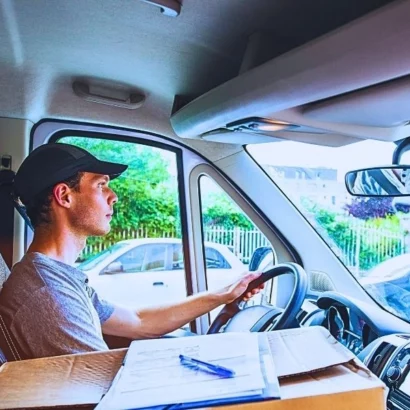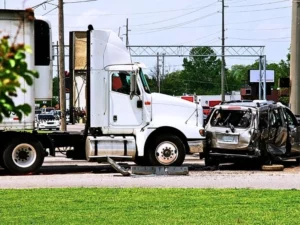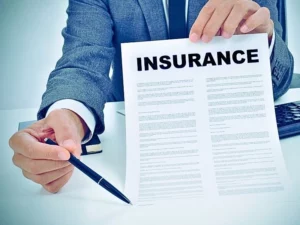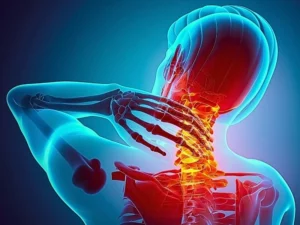After an accident with a FedEx truck, it is important to know who is liable, so you can seek compensation for your damages. The driver or FedEx are generally the parties that will be liable for the accident. However, other parties can also be liable, including the manufacturer of the truck or its parts, the company responsible for the maintenance of the trucks, or the shipper or loader of the cargo.
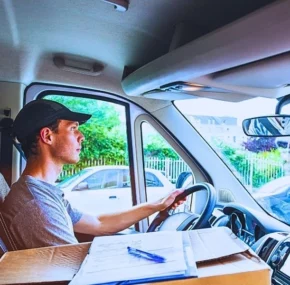
A car accident involving a FedEx driver can be more complicated than a regular accident. It can be overwhelming to figure out who is responsible, how to deal with insurance claims, and how to get compensation for any damages. Knowing the legal principles can help you navigate this process with more ease.
Understanding Liability in FedEx Truck Accidents
Liability refers to the legal responsibility of one party to compensate another party for injuries or damages caused by that party’s actions. This usually involves paying compensation to the innocent party for any losses incurred due to the incident. In commercial truck accidents, determining liability can be complex, as it often involves multiple parties, regulations, and insurance policies. The truck driver, employer, maintenance company, parts manufacturers, or other parties may be held liable depending on the circumstances.
The Role of Negligence in an Accident With a FedEx Truck
In legal terms, if someone acts carelessly and causes harm to another person, he or she is considered negligent and legally responsible for any resulting damage. This is known as the principle of negligence. Negligence can occur when a person fails to fulfill his or her duty of care towards someone else, resulting in injury, loss, or damage. A party that is negligent is typically held liable for any resulting damages.
In the case of a collision, the injured person must prove four elements to establish negligence:
- The defendant had a duty of care towards the victim.
- The defendant breached that duty of care.
- The breach was the direct and proximate cause of the victim’s injuries.
- The victim suffered damages.
If an accident involves a FedEx truck, and you can prove that the FedEx driver or the company was negligent, your truck accident lawyer will know how to sue FedEx for negligence.
Who Can Be Held Liable?
After a commercial truck accident, there are several parties who may be held liable. These include the truck driver, trucking company or carrier, owner of the truck or trailer, manufacturer of the truck or its parts, company responsible for maintenance of the trucks, or the shipper or loader of the cargo.
Moreover, FedEx may be sued if it knowingly hired a driver with a poor driving record or failed to provide adequate training to its driver. It may not seem intuitive to sue someone other than FedEx, but depending on the cause of the accident, it could be the best course of action for you to take.
Choosing the right individual or organization to hold accountable can make a significant difference in the compensation you receive. An attorney can assist you in making that decision.
Factors That Determine Liability in FedEx Accidents
The Actions of the Involved Drivers
If the driver’s negligence is found to be the sole cause of the collision, the driver may be held liable, or FedEx may be held vicariously liable for the driver’s actions. The Federal Motor Carrier Safety Administration provides a list of federal driver violations, which includes speeding, inattentive driving, lane diversion, and texting while driving. If the driver engaged in any of these driver violations or any other conduct that meets the four criteria for negligence, this may cause the driver or FedEx to be held liable for the accident.
Vehicle Maintenance Records
If the company responsible for maintaining FedEx trucks neglects regular inspections and maintenance, mechanical failures can lead to collisions. If your accident was caused by a faulty truck due to inadequate maintenance, legal action may be taken against the company responsible for the maintenance of the truck. Tougher truck safety standards could reduce accidents. Check the vehicle maintenance records to see if proper maintenance and repairs were carried out.
Other Factors That Influence Liability Determinations
Manufacturing defects
If the accident was caused by a defect in the truck or its components, the manufacturer could be held accountable.
Loading issues
If cargo is not loaded or secured properly, it may lead to an accident. In this case, the shipper or loader may be held liable.
The Actions of FedEx
It is important for FedEx to ensure that its drivers operate vehicles safely. If the company failed to hire experienced drivers, neglected to provide adequate training, or did not properly supervise its drivers while on the job, FedEx could be held liable for any accidents that occurred because of its negligence.
Vicarious Liability: Is FedEx Liable for Accidents?
Vicarious liability is a legal principle that states that employers can be held accountable for the actions of their employees if they cause an accident due to their carelessness. If the driver was acting within the course and scope of his or her employment at the time of the accident, you may be able to hold FedEx responsible for the driver’s negligence, rather than pursuing legal action against the driver.
How Subcontractors and Independent Contractors Impact Liability
Independent contractors and subcontractors are individuals or businesses who work as needed under a written or verbal contract. Unlike employees, they are not under the employer’s control, and therefore the employer usually can’t be held vicariously liable for their actions.
FedEx uses 6,000 independent contractors for delivering packages in the US. These contractors are responsible for their own equipment and drivers and are liable for any accidents. It’s important to determine whether the driver was directly employed by FedEx or an independent contractor.
Proving Liability in FedEx Truck Accidents
When filing a claim for compensation after a FedEx accident, you will need to prove liability. This will likely involve providing evidence to show who was at fault for the accident.
Gathering Evidence: Importance of Eyewitness Accounts, Accident Reports, and Photographs
Promptly calling law enforcement after a car accident is essential. This ensures official documentation through police reports, which is crucial evidence for establishing liability. Police will analyze the scene of the accident and talk to the drivers involved. They may also interview witnesses. The report includes contact information and witness details, which can be helpful for your case.
Most large truck accidents occur off the interstate, where there are fewer witnesses, making photo evidence crucial. Eyewitness accounts, photos, and videos can help establish and corroborate claims, and provide context in accidents involving FedEx trucks. It’s important to gather evidence as soon as possible to accurately depict the environment at the time of the incident.
Engaging Law Enforcement and Insurance Companies
FedEx has liability insurance to cover incidents. To initiate a claim, you will need to contact the company’s customer service department. Once you have started the process, an insurance company claims adjuster will be appointed to investigate the claim and determine the extent of FedEx’s liability.
It’s essential to communicate effectively with the claims adjuster and provide any evidence that you may have gathered. To verify the details of your story, the adjuster will compare it against various documentary evidence, such as police reports. That’s why it’s crucial to contact the police and file an accident report if the situation warrants it. A police report can help determine what happened and can support your claim by providing critical evidence. Without a police report, your claim may not be accepted or supported by the insurance company.
Expert Testimony: Utilizing Professional Analysis for Accident Reconstruction
Car accident reconstruction witnesses can be valuable in crash scenarios. An accident reconstructionist can analyze the crash scene and provide scientific insight into the cause, events that took place during the accident, and the aftermath. To complete a scientific analysis of the accident, the accident reconstructionist will use various methods to reconstruct the causes and events that took place during the accident. Without this testimony, building a strong case for compensation could prove to be challenging.
Establishing a Causal Link Between Negligence and the Accident
To establish causation in a legal case, you need to demonstrate that the actions of the FedEx driver materially caused the events that led to the accident. This requires proving a link between negligence and the accident. To support the chain of causation, various forms of evidence can be used, including:
- Copies of police reports and accident reports
- Testimony from parties involved, eyewitnesses, and expert witnesses
- Medical records related to the accident
- Videos and photographs of the accident scene, vehicles, injuries, and other relevant items
- Employment records that show missed work due to injuries
- Any relevant research that has been conducted
Each Illinois FedEx accident case is unique, so the evidence varies. Your lawyer will collect evidence and use it to support causation.

